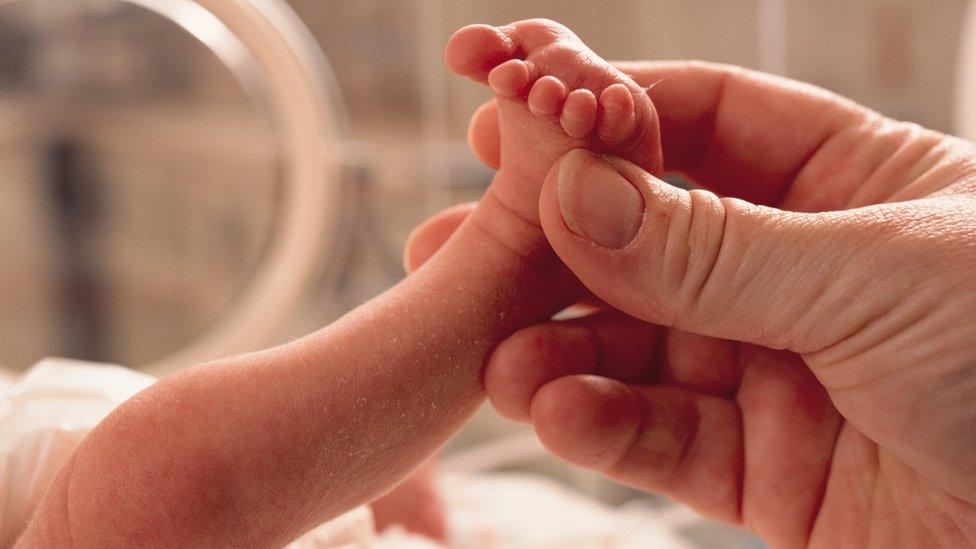Health inequality research offers UK wake-up call
- Published

Health inequality has been much discussed at learned seminars.
In 2010 a ground-breaking report for the government in England by Sir Michael Marmot set out the social factors governing health and pointed to the role of a child's early years in determining life chances.
Now, leading child health experts are saying that little progress has been made since then and that health inequality is still blighting the lives of young people.
The Royal College of Paediatrics and Child Health is arguing that what it calls the wide gap between rich and poor is damaging infant health around the UK.
The college president, Professor Neena Modi, points out that in general the health of young people has improved dramatically over the last 30 years.
But she argues that a lot more needs to be done to improve child health and that it is "particularly troubling" that "stark inequalities" have widened in the last few years.
Mortality rate worsens
The report says that the UK ranks high amongst Western European countries on mortality rates for infants under the age of one.
The relative position, according to the report, has worsened since the UK sat around the average in 1970.
Deprivation, it says, is strongly linked to death rates among children.
The college believes that many of the causes of infant mortality are preventable and asserts that issues such as fetal growth restriction disproportionately affect the least advantaged families in society.
Reducing child poverty, with benefits and housing policy playing a part, are crucial for improving infant survival, according to the report.
Reducing child poverty - partly through benefits and housing policy - is crucial in improving infant survival, the report says
New mortality data have been published this week by the Office for National Statistics.
They underline again the scale of inequalities.
Within England, the West Midlands had double the infant mortality rate of the South East in 2015, at 6.1 deaths per 1,000 live births.
For the whole population (age-standardised), Blackpool, Glasgow, Belfast and Blaenau Gwent had considerably higher death rates than areas like Monmouthshire and City of London.
The ONS release accompanying the data notes: "The substantial variation in mortality rates between different local areas reflects underlying differences in factors such as income deprivation, socio-economic position and health behaviour."
The nation's statisticians are confirming the thrust of the Royal College report - that inequality is a key driver in health outcomes.
Decline in earnings
Income inequality on some measures has fallen in recent years in the UK.
But this followed a sharp decline in earnings and investment returns for the wealthiest households after the financial crisis at a time when benefits for the poorest were being protected by government policies.
Inequality is higher than it was in the 1970s and is still relatively high compared to other advanced economies.
Real wages for much of the population have stagnated since the start of the recession in 2008.
It has been described as a "lost decade" even by the governor of the Bank of England, Mark Carney.
A recent ONS report on household inequality, noting the relative generosity of pensioner benefit increases compared to other parts of the population, stated: "While retired households' incomes have soared in recent years, non-retired households still have less money, on average, than before the crash."
While most people close to or at average income levels remain financially stretched and there are no signs of a significant reduction in the gap between rich and poor, health disparities will be hard to shift.
The latest Royal College report and data are a wake-up call if one were needed.